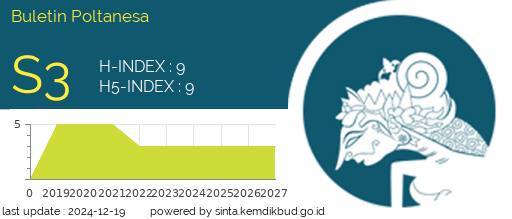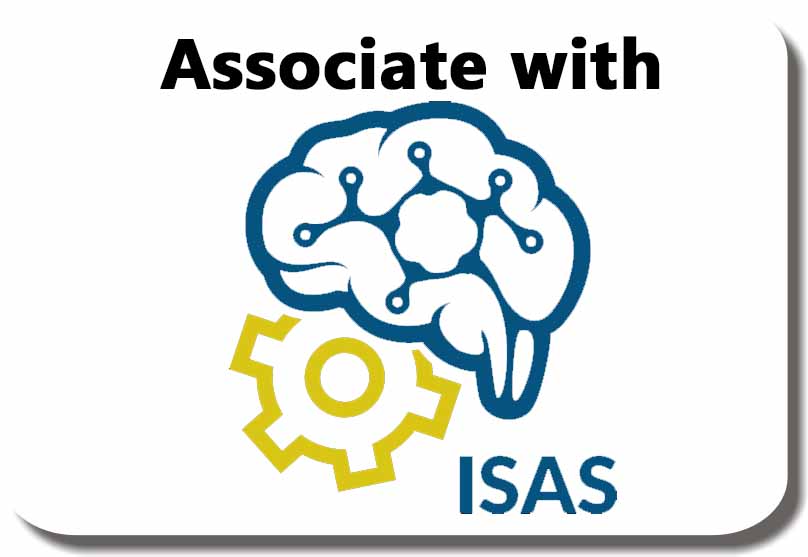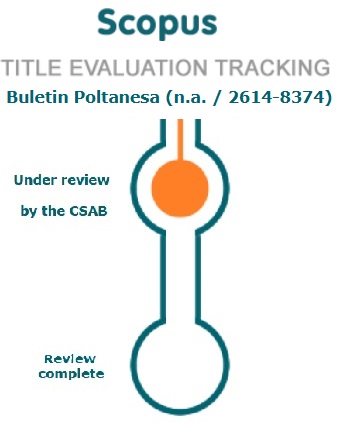Upaya Meningkatkan Motivasi Intrinsik Tenaga Kesehatan Covid-19 Berbasis Appreciative Inquiry di Laboratorium Kesehatan Parahita Diagnostic Center
DOI:
https://doi.org/10.51967/tanesa.v23i2.2103Keywords:
Motivasi Intrinsik, Appreciative Inquiry, Tenaga Kesehatan, Covid-19, Swabber, LaboratoriumAbstract
Motivasi intrinsik adalah kontrol pribadi atas kinerja sebagai penentu sebuah aktivitas yang menarik. Penelitian ini bertujuan untuk meningkatkan motivasi intrinsik tenaga kesehatan Swabber Covid-19 dengan cara merancang dan melakukan implementasi perencanaan strategis dengan basis appreciative inquiry pada laboratorium Parahita Diagnostic Center di Surabaya. Pada praktiknya, terdapat tiga aspek yang ditekankan ketika meningkatkan motivasi intrinsik yaitu, aspek kompetensi, otonomi dan keterkaitan. Kemudian, kegiatan workshop dengan berbasis appreciative inquiry memunculkan aksi tindakan nyata yang diimplementasikan oleh seluruh subjek. Metode pada penelitian ini menggunakan action research dengan pendekatan appreciative inquiry yang mempunyai siklus discovery, dream, design, dan destiny melalui media workshop pada 6 Swabber Covid-19 laboratorium Parahita Diagnostic Center. Pengukuran kesuksesan penelitian ini diukur hasil dari proses internalizes motivasi pasca intervensi yang telah diberikan. Hasil penelitian menunjukkan bahwa subjek memberikan penilaian positif pada kegiatan workshop serta mengikuti acara dengan semangat dan antusias. Kemudian, hasil dari penelitian ini menunjukkan bahwa subjek mengalami dampak perubahan baik secara individu maupun organisasi serta terlaksananya aksi tindakan yang telah dirancang. Secara singkat, proses implementasi intervensi yang dilakukan oleh Swabber membantu proses internalizes dengan semakin otonom, memberikan dampak dan perubahan positif dalam meningkatkan motivasi intrinsik.
References
Alwisol. (2012). Psikologi Kepribadian (Edisi Revisi). Malang: Umm Press.
American Psychological Association. (2021, 21 Oktober). Monitor On Psychology, 54. Diakses pada 29 Oktober 2021, dari https://www.apa.org/monitor/2021/2021-10-monitor.pdf
Barrett, F. J. (1995). Creating appreciative learning cultures. Organizational dynamics, 24(2), 36-49. https://doi.org/10.1016/0090-2616(95)90070-5
Bushe, G. R., & Paranjpey, N. (2015). Comparing the generativity of problem solving and appreciative inquiry: A field experiment. The Journal of Applied Behavioral Science, 51(3), 309-335. https://doi.org/10.1177/0021886314562001
Cnbcindonesia.com. (2021, 21 Juni). Tambah 14.536 Kasus, Hari Ini RI Cetak Rekor Covid-19. Diakses pada 4 Oktober 2021, dari 2021/news/20210621151057-4-254761/tambah-14536-kasus-hari-ini-ri-cetak-rekor-Covid-19
Cnnindonesia.com. (2021, 22 Juni). Tenaga kesehatan Terpapar Covid-19 Capai 324 Orang dalam Sebulan. Diakses pada 6 Oktober 2021, dari https://www.cnnindonesia.com/nasional/20210622191848-20-657938/tenaga kesehatan-terpapar-Covid-19-capai-324-orang-dalam-sebulan
Cnnindonesia.com. (2021, 18 Juni). PPNI: 4 Provinsi Krisis tenaga kesehatan, DKI Kekurangan Seribu Perawat. Diakses pada 21 Oktober 2021, dari https://www.cnnindonesia.com/nasional/20210618152846-20-656290/ppni-4-provinsi-krisis-tenaga kesehatan-dki-kekurangan-seribu-perawat
Cooperrider, D. L., & Avital, M. (2004). Introduction: Advances in appreciative inquiry–constructive discourse and human organization. In Constructive discourse and human organization. Emerald Group Publishing Limited. https://doi.org/10.1016/S1475-9152(04)01017-8
Cooperrider, D. L., Stavros, J. M., & Whitney, D. (2008). The appreciative inquiry handbook: For leaders of change. Berrett-Koehler Publishers.
Cooperrider, D. L., & Whitney, D. (2005). A Positive Revolution in Change: Appreciative Inquiry. Diunduh pada 1 Juni 2022, dari https://www.researchgate.net/publication/237404587_A_Positive_Revolution_in_Change_Appreciative_Inquiry
Deci, E. L., & Vansteenkiste, M. (2003). Self-determination theory and basic need satisfaction: Understanding human development in positive psychology.
Deci, E. L., Koestner, R., & Ryan, R. M. (1999). A meta-analytic review of experiments examining the effects of extrinsic rewards on intrinsic motivation. Psychological bulletin, 125(6), 627. https://doi.org/10.1037/0033-2909.125.6.627
Deci, E. L., & Ryan, R. M. (2000). The" what" and" why" of goal pursuits: Human needs and the self-determination of behavior. Psychological inquiry, 11(4), 227-268. https://doi.org/10.1207/S15327965PLI1104_01
Fisip.ui.ac.id. (2021, 25 Februari). Melawan “Keletihan Sosial” di Masa Pandemi. Diakses pada 17 November 2021, dari https://fisip.ui.ac.id/ melawan-keletihan-sosial-di-masa-pandemi-2/
Gergen, K. J. (1992). The social constructionist movement in modern psychology. The Restoration of Dialogue: Readings in the Philosophy of Clinical Psychology, 556–569. https://doi.org/10.1037/10112-044
Kemkes.go.id. (2021, 16 Agustus). Pemerintah Menurunkan Harga pemeriksaan RT- PCR Sebesar 45%. Diakses pada 10 Oktober 2021, dari https://www.kemkes.go.id/article/view/21081600001/pemerintah-menurunkan-harga-pemeriksaan-rt--pcr-sebesar-45-.html
Ludema, J. D., & Fry, R. E. (2008). The practice of appreciative inquiry. The SAGE Handbook of Action Research: Participative Inquiry and Practice, 280–296.
McNiff, J. (2002). Action research: Principles and practice. Routledge.
Robbins, S. P. & Judge, T. A. (2018). Organizational Behavior (14th Edition), USA: Pearson International Edition, Vivar - Malaysia.
Ryan, R. M., & Deci, E. L. (2017). Self Determination Theory. New York: The Guilford Press.
Ryan, R. M., & Deci, E. L. (2000). Self-determination theory and the facilitation of intrinsic motivation, social development, and well-being. American Psychologist, 55(1), 68–78. https://doi.org/10.1037/0003-066X.55.1.68
Ryan, R. M., Lynch, M. F., Vansteenkiste, M., & Deci, E. L. (2011). Motivation and autonomy in counseling, psychotherapy, and behavior change: A look at theory and practice. The Counseling Psychologist, 39(2), 193-260. https://doi.org/10.1177/0011000009359313
Sehatnegeriku.kemkes.go.id. (2021, 27 Oktober). Tarif RT-PCR Turun! Ini Harga Terbarunya. Diakses pada 29 Oktober 2021, dari https://sehatnegeriku.kemkes.go.id/baca/rilis-media/20211027/4738755/tarif-rt-pcr-turun-ini-harga-terbarunya/
Vansteenkiste, M., Lens, W., & Deci, E. L. (2006). Intrinsic versus extrinsic goal contents in self-determination theory: Another look at the quality of academic motivation. Educational psychologist, 41(1), 19-31. https://doi.org/10.1207/s15326985ep4101_4
Verleysen, B., Lambrechts, F., & Van Acker, F. (2015). Building psychological capital with appreciative inquiry: Investigating the mediating role of basic psychological need satisfaction. The Journal of Applied Behavioral Science, 51(1), 10-35. https://doi.org/10.1177/0021886314540209
Whitehead, J., & McNiff, J. (2006). Action research: Living theory. Sage.
Whitney, D. D., & Trosten-Bloom, A. (2010). The power of appreciative inquiry: A practical guide to positive change. Berrett-Koehler Publishers.
Downloads
Published
How to Cite
Issue
Section
License
The copyright of this article is transferred to Buletin Poltanesa and Politeknik Pertanian Negeri Samarinda, when the article is accepted for publication. the authors transfer all and all rights into and to paper including but not limited to all copyrights in the Buletin Poltanesa. The author represents and warrants that the original is the original and that he/she is the author of this paper unless the material is clearly identified as the original source, with notification of the permission of the copyright owner if necessary.
A Copyright permission is obtained for material published elsewhere and who require permission for this reproduction. Furthermore, I / We hereby transfer the unlimited publication rights of the above paper to Poltanesa. Copyright transfer includes exclusive rights to reproduce and distribute articles, including reprints, translations, photographic reproductions, microforms, electronic forms (offline, online), or other similar reproductions.
The author's mark is appropriate for and accepts responsibility for releasing this material on behalf of any and all coauthor. This Agreement shall be signed by at least one author who has obtained the consent of the co-author (s) if applicable. After the submission of this agreement is signed by the author concerned, the amendment of the author or in the order of the author listed shall not be accepted.









